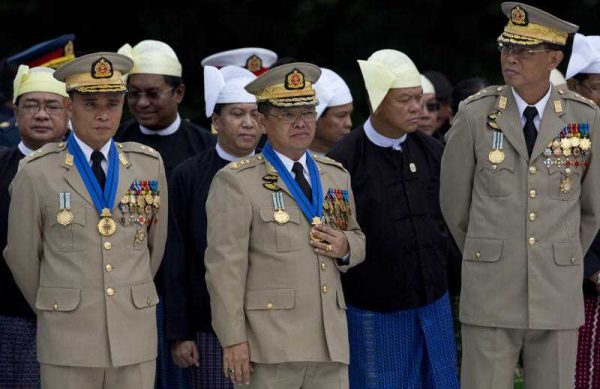While acknowledging these challenges, reforms within the electoral process create the real possibility of relatively free and fair elections occurring. The Election Commission has targeted specific areas manipulated by the Union Solidarity and Development Party (USDP) in the highly fraudulent 2010 elections. Building off the success of the 2012 by-elections, these measures include improvements to monitoring of advanced polling, digitising voter lists, inclusion of party representatives to observe vote counting, and inviting foreign observers.
If elections do occur, the USDP faces not just losing their legislature majority but also the risk of complete electoral annihilation. Due to political realities and the distortions associated with the currently used first-past-the-post system, the USDP will be eclipsed in the central Burman states by the hugely popular National League for Democracy (NLD) and eliminated from the border regions by a number of ethnic parties. With a concentration of seats in the Burman areas, the NLD stands to win big and the USDP stands to become a trivial entity in the legislature.
Yet a parliamentary majority does not directly translate into forming government due to the unique relationship between the legislative and executive branches outlined in Myanmar’s constitution. Critical to this arrangement is Myanmar’s most powerful political actor, the military, who significantly influences both the pathways to and makeup of the presidency and cabinet.
Faced with the likely prospect of a legislature populated mostly by representatives with non-military backgrounds, will a reconfiguration of power be palatable to the generals? The military has a long history of political involvement, including two coups establishing direct military rule. These actions have been justified by an overarching praetorian ethos that states that the military is the only institution capable of defending the national interests of the state against foreign and domestic threats. Intervention remains an option but the military will be reluctant to pursue this path, since it would likely damage improving relations with the West.
The military has a number of core interests that they are determined to preserve. These include constitutional representation in parliament and the executive, control over security portfolios, veto powers over constitutional change, institutional autonomy from political oversight, and immunity from prosecution of past actions during the junta-era. With these interests secured, the military has moved from being a hegemonic to a veto player within Myanmar’s new political architecture. Those in uniform no longer monopolise politics but have entrenched themselves in specialised roles and in the constitution to ensure that they are a necessary actor in the evolution of the political system and the state’s political leadership: a role they have made clear they will retain past the 2015 elections.
Maintaining the current regime configuration would require massive, and obvious, manipulation of the electoral process and/or military intervention to prevent a significant redistribution of power in the legislature towards opposition parties. But the willingness of the USDP and military to collaborate on such a plan is questionable given their increasingly divergent, and at times conflicting, interests.
Regime solidarity between Myanmar’s most powerful entities — currently the military, USDP and the Thein Sein government — is slowly eroding. Their competing interests have revealed themselves as the USDP attempts to distance themselves from the military, portraying themselves as an independent and legitimate political entity. Tensions between the USDP legislative leadership and the government are evident in the former’s attempts to be an effective check on the power of the later. Military parliamentarians have voted against proportional representation electoral proposals, which would be largely beneficial to the USDP. The government is also concerned with the lack of oversight pertaining to military operations in the borderlands.
Regardless of the election’s outcome, the military will retain constitutionally protected powers, such as in deciding the president, who is not directly elected by the populace but by an Electoral College comprised of all members of parliament. With a 25 per cent seat allocation, the military has a large voting share as well as the right to nominate one of the three presidential candidates. The military also exclusively nominates the Ministers of Defence, Home and Borders, who are all active senior military officers.
In light of this, the USDP may be positioning itself as an ideal coalition partner, developing ties as fellow reformists with the possibly dominant NLD in the legislature while massaging the concerns of the military. If Aung San Suu Kyi remains barred from nomination as a presidential candidate, the Speaker of the Parliament Thura Shwe Mann may be seen as a satisfactory candidate to both sides to form government.
The military is reluctant to overtly and aggressively reintroduce itself politically unless it feels its core interests will be irrevocably and immediately compromised by a new government. With an effective veto over constitutional change, representation in parliament, the executive and control over security portfolios, the military may feel that it can control, or at least marginalise, a new government hostile to its interests. The 2015 elections will not, therefore, mark the end of the military’s political involvement but may bring about the first truly civilian-military government: a significant milestone as those outside the old, yet still influential, military regime gain access to begrudgingly-ceded power.
Adam P MacDonald is an independent researcher based in Halifax, Canada.


You are right to conclude that the military will continue to wield great power and influence in Myanmar, regardless of the outcome of the election.